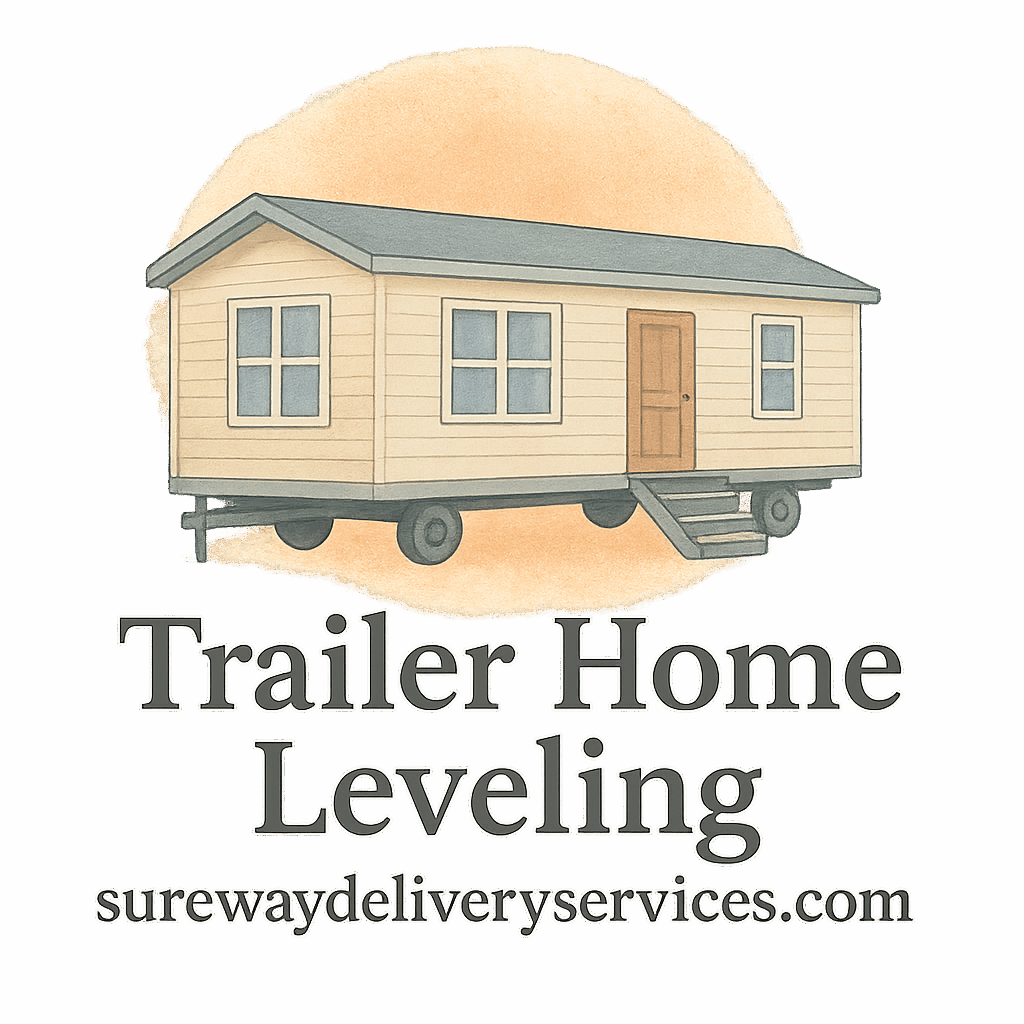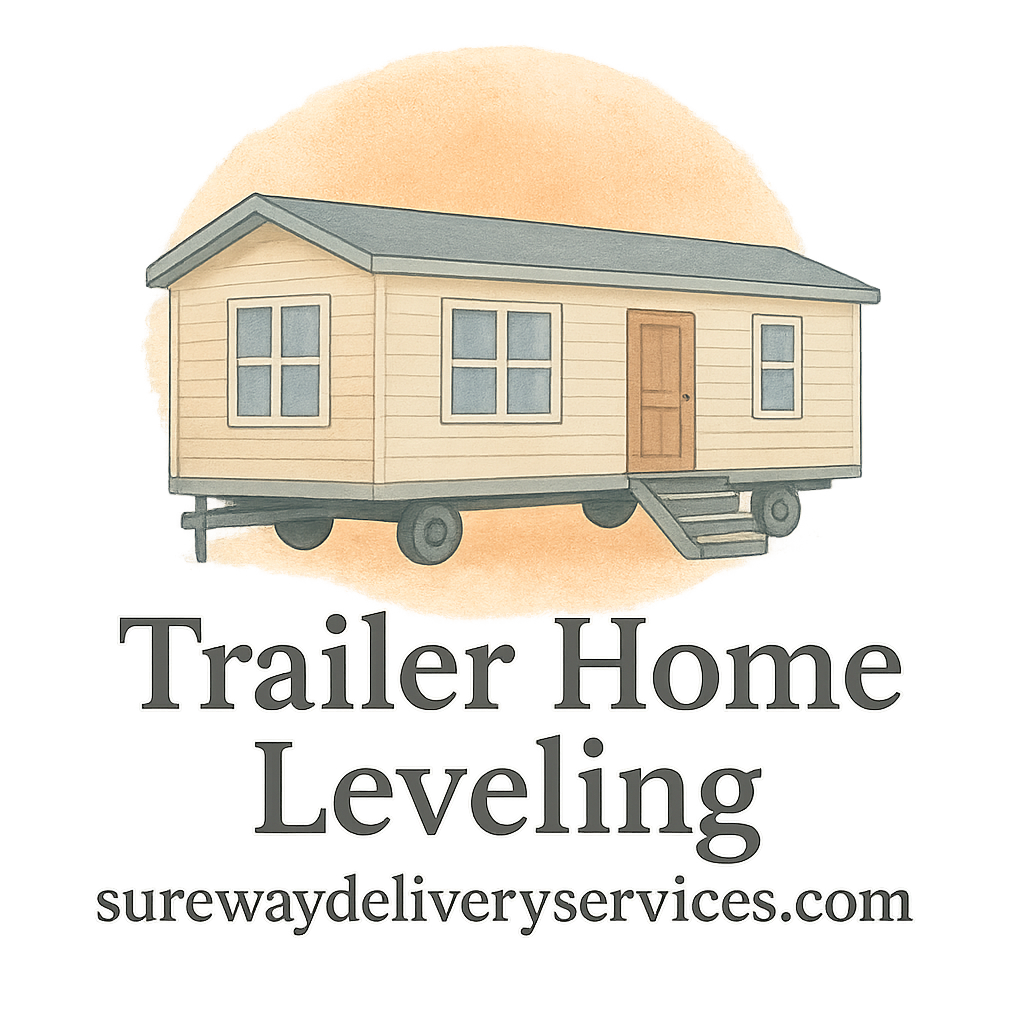Introduction
If you live in a trailer home or are thinking about getting one, you’ve probably heard about the importance of leveling. It’s a big deal, and here’s why: when your home isn’t level, everything starts to go sideways—literally and figuratively. Uneven floors, jammed doors, weird plumbing issues, and even long-term structural damage are just some of the headaches you might face. So, in this guide, we’re diving into the 5 most common causes of home leveling failure in trailer homes—what causes them, how to spot the red flags, and most importantly, how to prevent them.
Why Home Leveling Matters for Trailer Homes
The Role of Structural Integrity
Trailer homes rest on a very different type of foundation than traditional houses. These homes are supported by piers, blocks, and jacks, which means if anything underneath shifts, your entire home feels it. A level base ensures your trailer remains structurally sound and safe.
Preventing Long-Term Damage
Ignoring leveling issues can lead to serious and expensive problems. Think buckled flooring, cracked walls, misaligned doors and windows—and eventually, even structural failure. This is where leveling becomes not just a fix, but a form of proactive home care.
1. Poor Soil Conditions
Unstable Ground and Shifting Soil
One of the biggest culprits of home leveling issues in trailer homes is the soil beneath. If the soil is loose, sandy, or full of organic matter, it’s prone to shifting over time. When the ground underneath your trailer moves, your home shifts with it.
Soil Erosion and Drainage Issues
Improper drainage can lead to soil erosion or saturation. Water accumulation around the foundation is a major red flag. It softens the soil, causing it to shift or settle, which leads to uneven support for your home.
For a deeper dive into how soil impacts your home, visit the Basics Introduction.
2. Inadequate Foundation Support
Weak or Improper Pier Placement
Your trailer’s piers should be strategically placed for even weight distribution. If they’re installed haphazardly or on weak footing, it won’t take long before things start leaning—literally.
Signs of Pier and Beam Failure
Notice cracks around your windows or doors that won’t close properly? These are signs that your foundation is crying for help. Don’t wait too long to address these symptoms.
Want to understand more about proper setup techniques? Check out the Techniques & Methods page.
3. Weather and Climate Effects
Seasonal Expansion and Contraction
Trailer homes, like all structures, expand and contract with the weather. Extreme heat or freezing temperatures can cause materials to warp or shrink. Over time, this wear and tear contributes to leveling issues.
Water Damage and Moisture Penetration
Humidity and rain can cause moisture to seep into your trailer’s support structure, especially if skirting or underpinnings are damaged. This leads to rusted supports and rotting wood.
Be sure to regularly review our Maintenance & Inspection checklist to prevent these issues.

4. DIY Installation Mistakes
Lack of Proper Tools and Techniques
It’s tempting to save a few bucks by leveling your trailer yourself, but unless you’ve got the right tools—and more importantly, the knowledge—it’s risky. One wrong move, and you could throw your entire home off balance.
Explore the right tools for the job in our Tools section.
Common Errors Made by Homeowners
We’ve seen it all—jacks placed on soft soil, improper use of shims, or uneven weight distribution. If it sounds like you, don’t worry. You’re not alone. But it’s definitely time to call in the pros.
Don’t skimp on quality; visit Service Hiring for advice on choosing the right help.
5. Lack of Regular Maintenance
Ignoring Early Warning Signs
That little creak in the floor? The slightly tilted cabinet? These are not just annoyances—they’re your trailer crying out for help. Waiting too long to fix minor issues often results in major repair costs.
Annual Inspections and Adjustments
Regular checkups go a long way in preventing leveling issues. A professional inspection once a year can catch minor problems before they balloon into major repairs.
Use our helpful Checklist to stay on top of routine checks, and explore Trailer Maintenance tips.
How to Prevent Home Leveling Failures
Routine Maintenance and Inspections
Create a regular maintenance calendar. Set reminders for quarterly checks and annual professional inspections. Look at it like going to the doctor—your trailer needs checkups too!
Hiring Certified Professionals
Always hire certified, experienced contractors who understand the unique setup of trailer homes. Read Customer Reviews and ask the right questions.
Need help choosing a contractor? Our Service Hiring guide has you covered.
Conclusion
Leveling might not be the flashiest part of trailer home ownership, but it’s one of the most crucial. From poor soil and weather damage to DIY slip-ups and skipped inspections, the risks are real—but so are the solutions. The good news? With regular maintenance, a good eye for detail, and help from the pros, you can avoid the most common causes of home leveling failure.
Want more tips and resources? Dive into the essentials with Trailer Home Leveling, where we’ve got everything from budgeting to success stories.
FAQs
1. How do I know if my trailer home needs leveling?
Look for signs like slanted floors, doors that stick, or cracks in the walls. If anything feels “off,” it might be time to inspect the foundation.
2. Can I level my trailer home myself?
Technically, yes—but it’s not recommended unless you’re experienced. One wrong move can lead to expensive damage.
3. How often should I get my trailer home inspected?
At least once a year. Consider scheduling checks every six months in regions with extreme weather changes.
4. What kind of soil is best for trailer home foundations?
Stable, compacted soil with proper drainage is ideal. Avoid areas with loose sand or clay.
5. What tools are needed for home leveling?
You’ll need hydraulic jacks, a water level or laser level, shims, and safety equipment. Check out the Tools section for details.
6. Are there professional services for trailer home leveling?
Yes! Many certified companies specialize in mobile and trailer home leveling. Read our Service Package info to learn more.
7. What’s the average cost of leveling a trailer home?
It varies by location and severity of the issue, but generally ranges between $500 and $1,500. Visit our Cost Budgeting page for more details.


